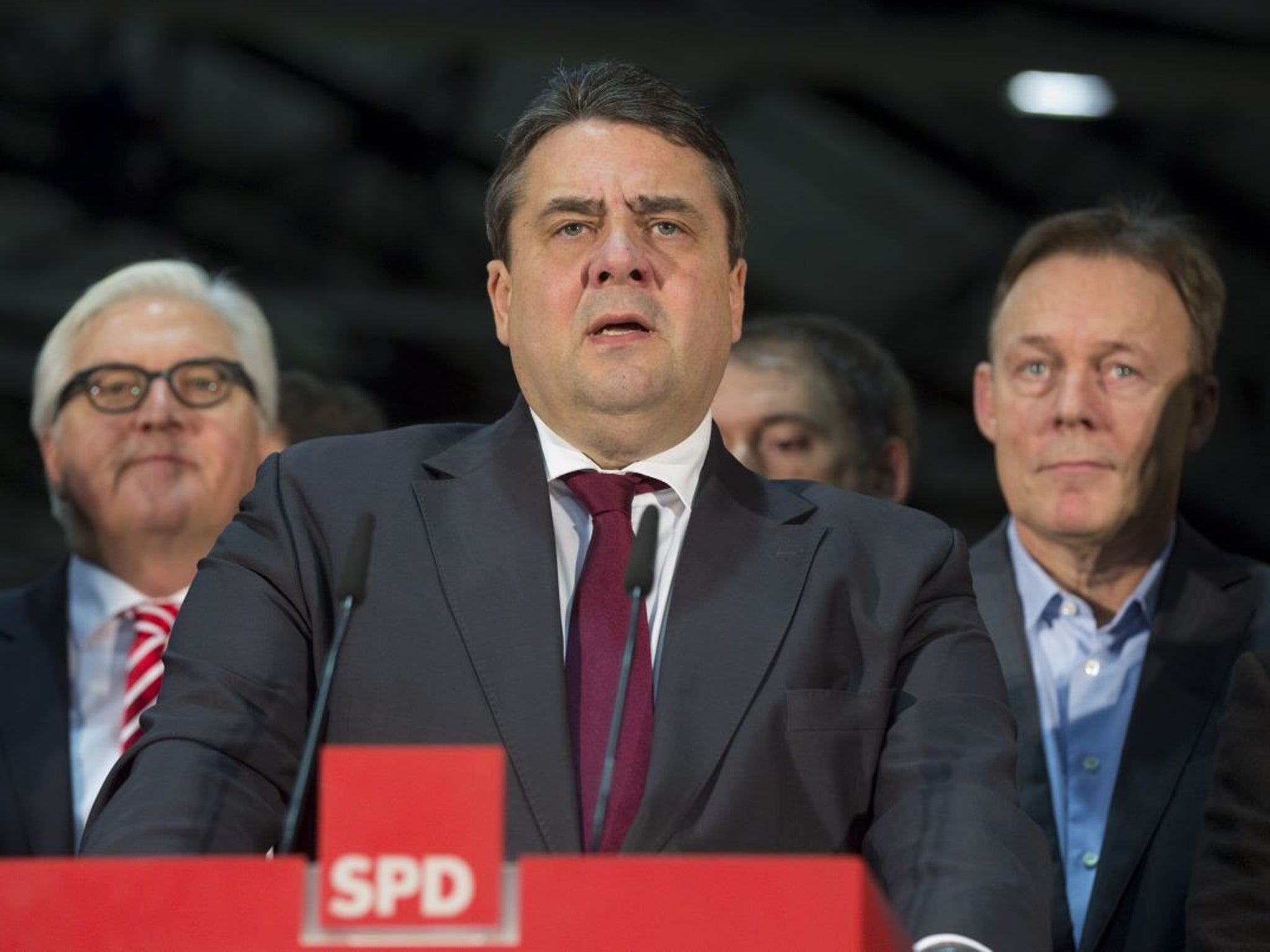German Social Democrats back coalition deal with Angela Merkel
The majority of the centre-left party's members voted to join the Chancellor in government.

Your support helps us to tell the story
From reproductive rights to climate change to Big Tech, The Independent is on the ground when the story is developing. Whether it's investigating the financials of Elon Musk's pro-Trump PAC or producing our latest documentary, 'The A Word', which shines a light on the American women fighting for reproductive rights, we know how important it is to parse out the facts from the messaging.
At such a critical moment in US history, we need reporters on the ground. Your donation allows us to keep sending journalists to speak to both sides of the story.
The Independent is trusted by Americans across the entire political spectrum. And unlike many other quality news outlets, we choose not to lock Americans out of our reporting and analysis with paywalls. We believe quality journalism should be available to everyone, paid for by those who can afford it.
Your support makes all the difference.The members of Germany’s main centre-left party have voted to join Chancellor Angela Merkel in government, clearing the way for her third term in office
The vote enables the country’s Parliament to re-elect Merkel on Tuesday, and ends three months of negotiations.
In an effort to counter initial resistance from party members who did not want to work again with their traditional rivals, Social Democrat leader Sigmar Gabriel risked asking party members to vote on any coalition deal.
Seventy-six per cent of the 475,000 party members who voted in the ballot agreed to a deal to form a coalition government under Merkel. Almost 24 per cent voted against.
Gabriel said he wanted to spend the next four years showing the minority that the majority “were right”.
He added that the party had shown a great “sense of responsibility” to the country.
Merkel’s conservative Christian Democratic Union party won in the September elections but failed to achieve a majority after previous coalition partners Free Democrats lost parliamentary seats after only gaining 4.8 per cent of the public vote.
This led to the longest effort to form a government since World War II.
Gabriel’s Social Democrats had partnered up with Merkel’s Christian Democratic Union party between 2005 and 2009 in her first term.
The decision left his party weakened, as they managed 26 per cent of the vote against the Union’s 41.5 per cent.
Gabriel and other leaders toured Germany over recent weeks to sell the deal that the Social Democrats and conservatives hammered out last month.
Centre-left demands including the introduction of Germany's first mandatory national minimum wage, at 8.50 euros (£7.17), per hour and a change to the pension system made part of the deal.
However, Germany's position in Europe's debt crisis will remain largely unchanged and Merkel's conservatives refused to raise taxes for high earners.
A conference of Merkel's Christian Democratic Union approved the coalition deal on Monday.
Its general secretary, Hermann Groehe, welcomed the result of the Social Democrats' ballot. “We are glad that our work together in government can now begin quickly,” he said.
Join our commenting forum
Join thought-provoking conversations, follow other Independent readers and see their replies
Comments